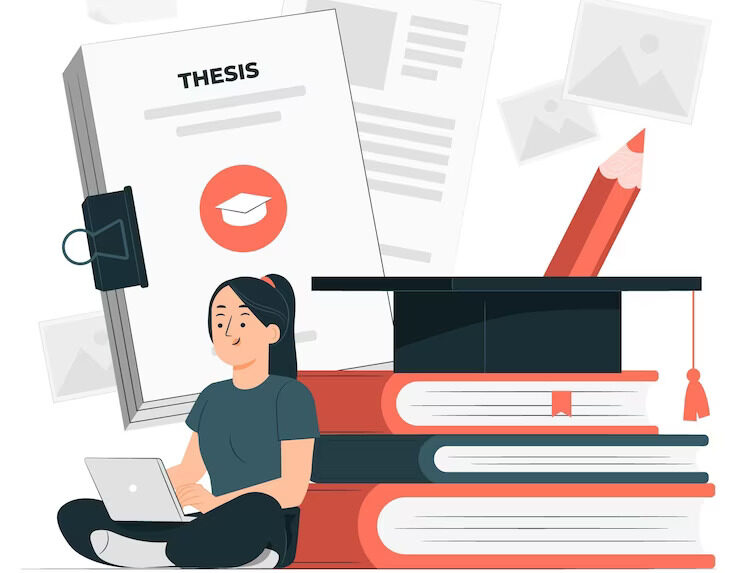Collaborating on Dissertations: The Role of Peer Review in Historical Research
- 1 In-depth Understanding of Peer Review
- 1.1 Definition and Detailed Explanation
- 1.2 Historical Evolution of Peer Review
- 1.3 Criteria Used in Peer Reviewing Historical Research
- 2 The Integral Role of Collaboration in Historical Research
- 2.1 Why Collaboration is Essential
- 2.2 Examples of Successful Collaborative Historical Research
- 2.3 Challenges, Benefits, and Solutions in Collaboration
- 3 The Influence of Peer Review on Collaborative Historical Research
- 4 Detailed Examination of the Peer Review Process in Historical Research
- 4.1 Step-by-Step Guide
- 4.2 Guaranteeing Accuracy and Reliability
- 4.3 Demonstration of a Typical Process
- 5 Criticisms and Limitations of Peer Review
- 6 Future Prospects for Peer Review
The world of academia thrives on collaboration. It’s an indispensable element that promotes the exchange of ideas, fosters creativity and propels scholarly development. One area where this is particularly crucial is in the production of dissertations in historical research. These pieces of scholarly work, often the culmination of years of study, are greatly enhanced by the process of peer review. As an established system, peer review acts as a quality control measure, ensuring that the research presented is factually accurate, well-researched, and contributes to the field in a valuable way.
In-depth Understanding of Peer Review
Definition and Detailed Explanation
Peer review is a process used in academia to assess the quality of scholarly work. It involves subjecting an author’s scholarly work, research, or ideas to the scrutiny of others who are considered knowledgeable in the same field.
Historical Evolution of Peer Review
The process of peer review has a rich history that dates back centuries. Originally, it was conceived as a way to maintain the integrity of scientific research, ensuring that any work published was rigorously checked for accuracy and reliability. Over time, it has also become a cornerstone in historical research, providing a platform for scholarly dialogue and criticism.
Criteria Used in Peer Reviewing Historical Research
The criteria used in peer reviewing historical research are rigorous. They involve the assessment of the research methodology, the accuracy of the data, the logic of the argument, the relevance of the findings, and the overall contribution to the field of history.
The Integral Role of Collaboration in Historical Research
Why Collaboration is Essential
Collaboration in historical research is essential because it encourages the exchange of ideas, fosters critical thinking, and brings different perspectives to the table. It allows for the cross-pollination of concepts and theories, which often leads to richer and more nuanced research outcomes.
Examples of Successful Collaborative Historical Research
Throughout history, there are countless examples of successful collaborative historical research. For example, the landmark work on the history of the Civil Rights Movement was a result of collaboration among various historians, exploring different aspects of the movement from different angles.
Challenges, Benefits, and Solutions in Collaboration
Collaboration in historical research, while hugely beneficial, also presents certain challenges. Disagreements can emerge over methodologies or interpretations, and issues can arise regarding the apportionment of credit for the work. According to a study by the National Academy of Sciences, nearly 50% of all academic researchers have experienced a dispute about authorship in a collaborative project at some point in their career.
However, the benefits of collaboration are significant and often outweigh the challenges. Collaboration facilitates the sharing of resources, allows for division of labor, and merges expertise to drive more comprehensive and nuanced research. It also aids in overcoming the isolation that can sometimes be a part of academic research, fostering a sense of camaraderie and shared purpose among researchers.
To address the challenges of collaboration, some scholars choose to use educational companies. These services can assist in the organization, writing, and editing of large collaborative projects. They can help ensure that the final product is cohesive, well-structured, and meets the high standards of academic research. By using a dissertation writing service, scholars can focus on their areas of expertise and contribute more effectively to the collaborative project. Further, these services can help mitigate conflicts by providing an objective third party to assist in decision-making processes.
However, while these services can be a valuable tool, they should not replace the essential collaborative process of peer review and scholarly dialogue. Collaboration, with all its challenges and benefits, is crucial to the depth, richness, and integrity of historical research.
The Influence of Peer Review on Collaborative Historical Research
Ensuring Quality
Peer review plays a key role in ensuring the quality of historical research. It provides an independent assessment of the work, highlighting strengths and identifying areas for improvement. It ensures that the research meets the highest standards of historical scholarship.
Enhancing Collaboration
Peer review also enhances collaboration among historical researchers. It fosters an environment of constructive criticism, where ideas can be tested and refined.
Impact of Peer Review – Case Studies
There are many instances where peer review has significantly improved the quality of historical dissertations. One such case is the dissertation on the impact of World War II on European society. The peer review process helped the author refine their arguments, resulting in a more robust and insightful piece of research.
Detailed Examination of the Peer Review Process in Historical Research
Step-by-Step Guide
When scholarly research is submitted to a prestigious journal or conference, it always marks the first step in the scholarly expedition and begins the complex journey of the peer review process. The diligent editors then take on the responsibility of assigning the submitted work to a group of learned reviewers who have deep expertise in the particular field being examined. With their discerning faculties at their disposal, these learned judges carefully examine the work and thoughtfully evaluate its merits in relation to a predetermined list of strict standards. After a thorough examination, they kindly offer their insightful recommendations, illuminating the way for knowledge to be refined and advanced.
Guaranteeing Accuracy and Reliability
Peer review serves as a stronghold for objective assessment, bolstering the reliability and veracity of historical research. Its powerful influence extends to the areas of accuracy and dependability, painstakingly revealing any hidden mistakes or cunning omissions. Additionally, this profound practice gives academic arguments a firm foundation and builds a wall of credibility around them. Peer review, which is based on the rich soil of historical sources, ensures the harmonious interaction between historical narratives and modern scholarship, creating a tapestry of scholarly discourse that is authentic and resonant.
Demonstration of a Typical Process
An example of a typical peer review process in historical research would involve the submission of a paper on the French Revolution. The paper would be reviewed by experts in the field, who would assess its methodology, arguments, use of sources, and contribution to the field. Based on their feedback, the author would then revise and resubmit the paper.
Criticisms and Limitations of Peer Review
Common Criticisms
Despite its many benefits, peer review is not without its critics. Some argue that it stifles innovation by favoring established ideas. Others claim that it can be biased, with reviewers favoring work from established academics or prestigious institutions.
Limitations of Peer Review
Despite its importance, the peer review process has some drawbacks that should be carefully considered. First and foremost, it depends on the cunning and unwavering integrity of the respected reviewers tasked with assessing the academic work. However, it is crucial to recognize that even the most learned minds can display fallibility, adding a certain amount of uncertainty to the process.
Furthermore, it has a tendency to be slow, which may prevent the timely dissemination of important research results that would otherwise influence the course of scientific knowledge. While supposedly protecting the quality of published works, this lengthy evaluation and deliberation process unintentionally slows down the rapid advancement of scientific discourse.
Possible Improvements
To address these limitations, some suggest making the process more transparent or introducing double-blind reviews, where neither the author nor the reviewer knows the identity of the other. Others recommend training for reviewers to ensure fair and effective reviews.
Future Prospects for Peer Review
Emerging Trends
The landscape of peer review is being reshaped by the advent of digital technology, ushering in exciting new trends. One of these is the shift towards open peer review, a system where reviews are made publicly available, adding a layer of transparency to the process. According to a study by PLoS ONE, about 60% of respondents were in favor of open peer review, indicating its growing acceptance.
Another emerging trend is the concept of collaborative peer review, where multiple reviewers work in tandem to evaluate a piece of work. This approach promotes a more comprehensive critique and fosters a collaborative spirit among reviewers.
In the rapidly evolving landscape of academia, an undeniable and compelling trend emerges—the burgeoning significance of digital literacy. This multifaceted phenomenon demands that contemporary scholars embody a profound mastery of digital realms, encompassing the prowess to discern, with perspicacity, the veracity of digital content, navigate the labyrinthine ethical quandaries that lurk within the realm of online research and adroitly harness digital tools for collaborative endeavors and seamless communication.
As this inexorable wave of digital literacy surges forth, the very fabric of peer review undergoes a metamorphosis, shedding its traditional cloak of passivity and transmuting into an interactive, kinetic process that pulsates with dynamism and alacrity.
Additionally, post-publication peer review is gaining traction. In this model, research is published first and reviewed afterward by the academic community. This is seen by some as a way to speed up the dissemination of research findings, although it has also raised concerns about the risk of spreading unverified information.
The integration of artificial intelligence (AI) in peer review is yet another trend to watch. AI has the potential to assist in checking the factual accuracy of research, identifying plagiarism, and even suggesting potential reviewers, thereby making the peer review process more efficient and reliable.
Predictions for the Future
In the future, we may see an increased use of technology in the peer review process, including artificial intelligence. Additionally, there may be more emphasis on training for reviewers and recognition for their work.
Best Practices
Best practices in peer review involve being thorough, objective, and respectful in reviews, providing constructive feedback, and adhering to deadlines.
Conclusion
In conclusion, peer review plays a vital role in collaborative historical research. It ensures the quality and accuracy of the research, fosters collaboration, and contributes to the advancement of the field. Despite its limitations, the benefits it offers are invaluable, making it an integral part of academic research. As it continues to evolve in response to technological advancements and changing academic practices, one thing remains certain – peer review will continue to be the backbone of academic integrity in the years to come.



















